By: Thom as G. Wilkinson, Jr. and Thomas M. O’Rourke
as G. Wilkinson, Jr. and Thomas M. O’Rourke
Consider the following scenario: You represent a foreign corporation in a breach of contract action in Pennsylvania state court. Your client is seeking substantial damages for unpaid widgets that it shipped to the defendant buyer under the parties’ sales contract. At trial, defendant admits that it failed to pay and offers no defense to your claim, except one. Defendant denies liability on the ground that your client lacks legal capacity to maintain a lawsuit in Pennsylvania because it is “doing business” in Pennsylvania without a “certificate of authority.” According to defendant, this precludes your client from collecting a dime.
The Pennsylvania Superior Court recently addressed this very argument and reached a decision that may surprise many practitioners. In Drake Manufacturing Company, Inc. v. Polyflow, Inc., the court, in an opinion written by Judge Patricia H. Jenkins, overturned a nearly $300,000 verdict in favor of the plaintiff because the plaintiff did not have a certificate of authority to do business in Pennsylvania. 2015 WL 302266 (Pa. Super. Jan. 5, 2015). Although plaintiff secured a certificate of authority after trial in response to defendant’s post-trial motion, the Superior Court held that plaintiff’s corrective action came too late.
WL 302266 (Pa. Super. Jan. 5, 2015). Although plaintiff secured a certificate of authority after trial in response to defendant’s post-trial motion, the Superior Court held that plaintiff’s corrective action came too late.
As Drake makes clear, foreign corporations that are “doing business” in Pennsylvania must be registered with the Department of State to obtain relief in a Pennsylvania court. The failure to register can operate as a complete bar to recovery. Pennsylvania’s registration requirement, however, does have its limits. In Generational Equity LLC v. Schomaker, the Third Circuit recently held that Pennsylvania’s registration requirement is preempted by the Federal Arbitration Act (“FAA”) and does not preclude a party without a registration from enforcing an  arbitration award governed by the FAA in federal court. 2015 WL 758532 (3d Cir. Feb. 23, 2015) (non-precedential). Aside from FAA actions, however, Pennsylvania’s registration requirement for foreign business entities remains in effect and can still preclude a plaintiff from recovering damages in both state and federal courts in Pennsylvania.
arbitration award governed by the FAA in federal court. 2015 WL 758532 (3d Cir. Feb. 23, 2015) (non-precedential). Aside from FAA actions, however, Pennsylvania’s registration requirement for foreign business entities remains in effect and can still preclude a plaintiff from recovering damages in both state and federal courts in Pennsylvania.
On July 1, 2015, a new registration regime for foreign businesses will take effect. Under the new requirements, however, foreign businesses that are “doing business” in Pennsylvania without proper authorization will still be without legal capacity to sue in Pennsylvania. See 15 Pa.C.S. § 401, et seq. It will remain critical, therefore, for each foreign business to ensure that it is properly registered, if necessary, before seeking recovery in Pennsylvania.
The Registration Requirement and the Legal Capacity to Sue
In Drake Manufacturing, plaintiff, a Delaware corporation, filed its contract action in the Warren County Court of Common Pleas. 2015 WL 302266 at *1-2 (Pa. Super. Jan. 5, 2015). Drake claimed that the defendant, Polyflow, failed to pay for machinery and pipe fittings that Drake had shipped to Polyflow pursuant to the parties’ contract. The machinery and pipe fittings were valued at $291,766.
The case was tried before the court, without a jury. At trial, Polyflow “did not dispute its failure to pay Drake or contend that [Drake] failed to perform its duties” under the parties’ contract. Polyflow’s “only defense” was that Drake lacked capacity to sue in Pennsylvania because it was “doing business” in Pennsylvania without a  certificate of authority under 15 Pa.C.S. § 4141(a). Under § 4141(a), a “nonqualified foreign business corporation doing business in this Commonwealth … shall not be permitted to maintain any action or proceeding in any court of this Commonwealth until the corporation has obtained a certificate of authority.”
certificate of authority under 15 Pa.C.S. § 4141(a). Under § 4141(a), a “nonqualified foreign business corporation doing business in this Commonwealth … shall not be permitted to maintain any action or proceeding in any court of this Commonwealth until the corporation has obtained a certificate of authority.”
Polyflow asserted its defense under § 4141(a) in a motion for compulsory non-suit after the close of Drake’s case-in-chief. In support of the motion, Polyflow submitted a certification from the Pennsylvania Department of State, stating that an examination of the Department’s records did not reveal any certificate of authority for Drake. 2015 WL 302266 at *2 & n.12. Polyflow also elicited testimony from a Drake officer, who stated that he was unsure whether Drake had a certificate of authority and that he did not have a certificate “with [him]” to offer into evidence. Id. at 2 n.13.
In addition, Polyflow offered evidence to prove that Drake was “doing business” in Pennsylvania. Under Section 4141(a), “doing business” involves regular, repeated and continuing business contacts of a local nature, as opposed to a “single agreement” or an “isolated transaction.”[1] Id. at *6. For example, the Pennsylvania Superior Court has held that a foreign corporation that shipped lighting fixtures to Pennsylvania six times over a six month period was “doing business” in Pennsylvania. See Leswat Lighting, Inc. v. Lehigh Valley Restaurant Group, Inc., 663 A.2d 783, 785 (Pa. Super. 1995). Polyflow asserted that Drake satisfied this standard because it had a Pennsylvania office and had shipped machinery and pipe fittings to Polyflow’s Pennsylvania facility on several occasions.
local nature, as opposed to a “single agreement” or an “isolated transaction.”[1] Id. at *6. For example, the Pennsylvania Superior Court has held that a foreign corporation that shipped lighting fixtures to Pennsylvania six times over a six month period was “doing business” in Pennsylvania. See Leswat Lighting, Inc. v. Lehigh Valley Restaurant Group, Inc., 663 A.2d 783, 785 (Pa. Super. 1995). Polyflow asserted that Drake satisfied this standard because it had a Pennsylvania office and had shipped machinery and pipe fittings to Polyflow’s Pennsylvania facility on several occasions.
The trial court denied the defendant’s motion for compulsory non-suit and awarded Drake $291,766 in contract damages. Polyflow re-raised the issue in a post-trial motion. In its response, Drake attached a certificate of authority to do business in Pennsylvania, which it had obtained after trial. Relying on the certificate, the trial court denied Polyflow’s post-trial motion.
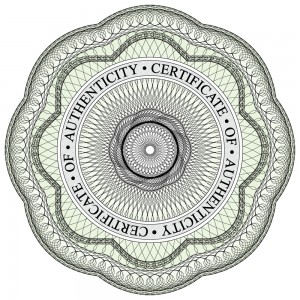 The Pennsylvania Superior Court reversed, holding that Drake lacked the capacity to maintain a suit in Pennsylvania. The Superior Court determined that Drake was required to submit a “certification of authority into evidence before the verdict[,]” at the latest, and that the trial court abused its discretion when it relied on Drake’s “delinquent” post-verdict certificate of authority to deny Polyflow’s motion. 2015 WL 302266 at *3, 8-9. The Drake Court suggested that a trial court could keep the trial record open after the close of evidence, but before verdict, to enable a foreign business to submit a proper registration into evidence and satisfy the registration requirement. 2015 WL 302266 at *9. “Upon the entry of the verdict, however, the window of opportunity closes[.]” Id.
The Pennsylvania Superior Court reversed, holding that Drake lacked the capacity to maintain a suit in Pennsylvania. The Superior Court determined that Drake was required to submit a “certification of authority into evidence before the verdict[,]” at the latest, and that the trial court abused its discretion when it relied on Drake’s “delinquent” post-verdict certificate of authority to deny Polyflow’s motion. 2015 WL 302266 at *3, 8-9. The Drake Court suggested that a trial court could keep the trial record open after the close of evidence, but before verdict, to enable a foreign business to submit a proper registration into evidence and satisfy the registration requirement. 2015 WL 302266 at *9. “Upon the entry of the verdict, however, the window of opportunity closes[.]” Id.
The Superior Court also determined that Polyflow had properly preserved its “lack of capacity” defense by raising the issue in its answer with new matter. Preliminary objections were not required. The court also noted that it was immaterial that Drake’s claims involved Polyflow’s failure to pay “for out-of-state shipments in California, Canada and Holland.” A “foreign corporation that ‘does business’ in Pennsylvania … must obtain a certificate in order to prosecute a lawsuit in this Commonwealth, regardless of whether the lawsuit itself concerns in-state conduct or out-of-state conduct.” Id. at *7.
The Registration Requirement and the FAA
The registration requirement, however, may not apply in cases arising under the FAA. In a recent non-precedential opinion, Generational Equity LLC v. Schomaker, the Third Circuit considered whether a limited liability company could enforce an arbitration award in a federal district court sitting in Pennsylvania, despite the fact that the company was not registered to do business in Pennsylvania under 15 Pa.C.S. § 8587. 2015 WL 758532 at *1-2 (3d Cir. Feb. 23, 2015). Section 8587 sets forth the current registration requirement for foreign limited liability partnerships.
liability company could enforce an arbitration award in a federal district court sitting in Pennsylvania, despite the fact that the company was not registered to do business in Pennsylvania under 15 Pa.C.S. § 8587. 2015 WL 758532 at *1-2 (3d Cir. Feb. 23, 2015). Section 8587 sets forth the current registration requirement for foreign limited liability partnerships.
In Schomaker, the parties had entered into an arbitration agreement which provided that “judgment upon the arbitration award could be entered in any federal or state court with jurisdiction[.]” Id. at *1. When the plaintiff sought to enforce an arbitration award under the agreement in the Western District of Pennsylvania, the defendant moved to dismiss on jurisdictional grounds, asserting that the Court was precluded from hearing the case under Pennsylvania’s registration requirement. It was undisputed that diversity jurisdiction existed – the “only dispute [was] whether a Pennsylvania law which would preempt jurisdiction applies in this case.” Id. The district court denied the defendant’s motion on procedural grounds.
The Third Circuit affirmed, but unlike the district court, addressed the jurisdictional issue. The Third Circuit acknowledged that Pennsylvania’s registration requirement could preclude a foreign business entity from maintaining a suit in Pennsylvania, but determined that this requirement could not stand as an “obstacle to the accomplishment of the intended objectives of the FAA.” Id. at *2. The court, therefore, held that the Pennsylvania statute was pre-empted by the FAA to the extent that it precluded a federal district court from enforcing an arbitration provision and “exercising the authority Congress clearly intended under the FAA.” Id. The court also made clear that its ruling would cover motions to compel arbitration under an arbitration clause as well as motions to enforce an arbitration award. Id.
The Third Circuit’s reasoning on these issues should apply with equal force to Pennsylvania state courts, which are also subject to the enforcement regime imposed by the FAA. See Southland Corp. v. Keating, 465 U.S. 1 (1984); Dickler v. Shearson Lehman Hutton, Inc., 596 A.2d 860 (Pa. Super. 1991).
Keating, 465 U.S. 1 (1984); Dickler v. Shearson Lehman Hutton, Inc., 596 A.2d 860 (Pa. Super. 1991).
The New Registration Regime Effective July 1, 2015
Effective July 1, 2015, new registration requirements will take effect in Pennsylvania. See 15 Pa.C.S. § 401, et seq. Currently, foreign corporations and limited liability companies are required to obtain a “certificate of authority,” whereas limited liability partnerships are required to “register” to do business in Pennsylvania. See Dague v. Huddler, 2008 WL 4444266 (E.D. Pa. Oct. 2, 2008); but see Generational Equity, 2015 WL 758532 at *2 (subjecting limited liability company to same registration requirement as a limited liability partnership). The new requirements will consolidate and standardize the governing procedure for obtaining registration. A foreign business entity, however, will still have to register with the Department of State in order to maintain an action in Pennsylvania. 15 Pa.C.S. §§ 411, 412.
Under the new requirements, “[a] foreign filing association or foreign limited liability partnership doing business in this Commonwealth may not maintain an action or proceedings in this Commonwealth unless it is registered to do business under this chapter.” 15 Pa.C.S. § 411(b). “Foreign filing associations” include corporations, partnerships, limited liability companies and “business or statutory trust[s.]” See 15 Pa.C.S. § 411; 15 Pa.C.S. § 105. Each of the above-listed entities will be required to file a “registration statement” with the Department of State, unless the entity obtained proper registration under “former statutes” prior to July 1, 2015. 15 Pa.C.S. § 412(a)-(b). Therefore, foreign corporations that are issued a certificate of authority before July 1, 2015 will be “deemed to be registered” when the new provisions take effect.
Conclusion
 Although the Third Circuit has limited the application of Pennsylvania’s registration requirement in actions governed by the FAA, the lack of a proper registration can still preclude a foreign business from obtaining a recovery in Pennsylvania. This requirement will remain in effect when Pennsylvania’s new registration regime takes effect on July 1, 2015.
Although the Third Circuit has limited the application of Pennsylvania’s registration requirement in actions governed by the FAA, the lack of a proper registration can still preclude a foreign business from obtaining a recovery in Pennsylvania. This requirement will remain in effect when Pennsylvania’s new registration regime takes effect on July 1, 2015.
Accordingly, foreign businesses operating in Pennsylvania should be sure to obtain proper registration, especially if they intend to initiate an action in Pennsylvania. Entities that fail to do so could forfeit much more than the $250 application fee for a certificate of authority or an application to register a foreign limited liability partnership with the Department of State. These applications, as well as other relevant forms, are available on the Pennsylvania Department of State’s website, at the following address: http://www.portal.state.pa.us/portal/server.pt/community/corporations/12457/forms/571880. Once registration is complete, it does not expire and renewal is unnecessary.
The failure to register with the Department of State, however, is not something that can sneak up on a foreign business on the eve of trial and take a verdict away. Defendants are required to raise any lack of capacity defense based on the registration requirement in their answer, or else the defense is deemed waived. A foreign business, therefore, should be on notice of any potential registration issue early in the case and can obtain recovery in a Pennsylvania court as long as it obtains a valid registration before a verdict is entered.
[1] This interpretation is consistent with the statutory requirements that will go into effect on July 1, 2015. Under these requirements, “[a]ctivities not constituting doing business” in Pennsylvania are defined as, inter alia: (i) conducting “an isolated transaction;” (ii) holding meetings of its interest holders; (iii) maintaining bank accounts; (iv) selling through independent contractors; (v) soliciting or obtaining orders of goods for out-of-state delivery; (vi) owning property, without more; and (vii) securing or collecting debts or enforcing mortgages. See 15 Pa.C.S. § 403.
About The Author
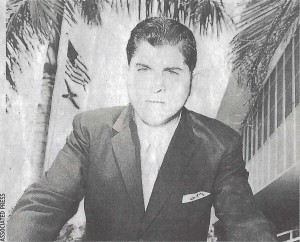

 There is no more important time than now—perhaps even yesterday—to understand the critical importance of implementing, enforcing and training on policies reflecting best practices to protect companies against the all too real threat of cyberhacking and privacy breaches. Technology has undoubtedly evolved faster than the law, and tech-savvy culprits—often appropriately labeled criminals—have made their presence felt across an array of industries. In-house counsel are often too busy, preoccupied and/or disinterested to recognize the impact of technology, but that must change in order to adequately safeguard businesses against potentially catastrophic consequences. For better and for worse, technology has become tremendously influential in this landscape.
There is no more important time than now—perhaps even yesterday—to understand the critical importance of implementing, enforcing and training on policies reflecting best practices to protect companies against the all too real threat of cyberhacking and privacy breaches. Technology has undoubtedly evolved faster than the law, and tech-savvy culprits—often appropriately labeled criminals—have made their presence felt across an array of industries. In-house counsel are often too busy, preoccupied and/or disinterested to recognize the impact of technology, but that must change in order to adequately safeguard businesses against potentially catastrophic consequences. For better and for worse, technology has become tremendously influential in this landscape.
 WL 302266 (Pa. Super. Jan. 5, 2015). Although plaintiff secured a certificate of authority after trial in response to defendant’s post-trial motion, the Superior Court held that plaintiff’s corrective action came too late.
WL 302266 (Pa. Super. Jan. 5, 2015). Although plaintiff secured a certificate of authority after trial in response to defendant’s post-trial motion, the Superior Court held that plaintiff’s corrective action came too late.  arbitration award governed by the FAA in federal court. 2015 WL 758532 (3d Cir. Feb. 23, 2015) (non-precedential). Aside from FAA actions, however, Pennsylvania’s registration requirement for foreign business entities remains in effect and can still preclude a plaintiff from recovering damages in both state and federal courts in Pennsylvania.
arbitration award governed by the FAA in federal court. 2015 WL 758532 (3d Cir. Feb. 23, 2015) (non-precedential). Aside from FAA actions, however, Pennsylvania’s registration requirement for foreign business entities remains in effect and can still preclude a plaintiff from recovering damages in both state and federal courts in Pennsylvania. 
 certificate of authority under 15 Pa.C.S. § 4141(a). Under § 4141(a), a “nonqualified foreign business corporation doing business in this Commonwealth … shall not be permitted to maintain any action or proceeding in any court of this Commonwealth until the corporation has obtained a certificate of authority.”
certificate of authority under 15 Pa.C.S. § 4141(a). Under § 4141(a), a “nonqualified foreign business corporation doing business in this Commonwealth … shall not be permitted to maintain any action or proceeding in any court of this Commonwealth until the corporation has obtained a certificate of authority.” local nature, as opposed to a “single agreement” or an “isolated transaction.”
local nature, as opposed to a “single agreement” or an “isolated transaction.” The Pennsylvania Superior Court reversed, holding that Drake lacked the capacity to maintain a suit in Pennsylvania. The Superior Court determined that Drake was required to submit a “certification of authority into evidence before the verdict[,]” at the latest, and that the trial court abused its discretion when it relied on Drake’s “delinquent” post-verdict certificate of authority to deny Polyflow’s motion. 2015 WL 302266 at *3, 8-9. The Drake Court suggested that a trial court could keep the trial record open after the close of evidence, but before verdict, to enable a foreign business to submit a proper registration into evidence and satisfy the registration requirement. 2015 WL 302266 at *9. “Upon the entry of the verdict, however, the window of opportunity closes[.]” Id.
The Pennsylvania Superior Court reversed, holding that Drake lacked the capacity to maintain a suit in Pennsylvania. The Superior Court determined that Drake was required to submit a “certification of authority into evidence before the verdict[,]” at the latest, and that the trial court abused its discretion when it relied on Drake’s “delinquent” post-verdict certificate of authority to deny Polyflow’s motion. 2015 WL 302266 at *3, 8-9. The Drake Court suggested that a trial court could keep the trial record open after the close of evidence, but before verdict, to enable a foreign business to submit a proper registration into evidence and satisfy the registration requirement. 2015 WL 302266 at *9. “Upon the entry of the verdict, however, the window of opportunity closes[.]” Id.  liability company could enforce an arbitration award in a federal district court sitting in Pennsylvania, despite the fact that the company was not registered to do business in Pennsylvania under 15 Pa.C.S. § 8587. 2015 WL 758532 at *1-2 (3d Cir. Feb. 23, 2015). Section 8587 sets forth the current registration requirement for foreign limited liability partnerships.
liability company could enforce an arbitration award in a federal district court sitting in Pennsylvania, despite the fact that the company was not registered to do business in Pennsylvania under 15 Pa.C.S. § 8587. 2015 WL 758532 at *1-2 (3d Cir. Feb. 23, 2015). Section 8587 sets forth the current registration requirement for foreign limited liability partnerships.  Keating, 465 U.S. 1 (1984); Dickler v. Shearson Lehman Hutton, Inc., 596 A.2d 860 (Pa. Super. 1991).
Keating, 465 U.S. 1 (1984); Dickler v. Shearson Lehman Hutton, Inc., 596 A.2d 860 (Pa. Super. 1991).  Although the Third Circuit has limited the application of Pennsylvania’s registration requirement in actions governed by the FAA, the lack of a proper registration can still preclude a foreign business from obtaining a recovery in Pennsylvania. This requirement will remain in effect when Pennsylvania’s new registration regime takes effect on July 1, 2015.
Although the Third Circuit has limited the application of Pennsylvania’s registration requirement in actions governed by the FAA, the lack of a proper registration can still preclude a foreign business from obtaining a recovery in Pennsylvania. This requirement will remain in effect when Pennsylvania’s new registration regime takes effect on July 1, 2015. 
 The crime-fraud exception to attorney-client privilege: As an attorney, you may not anticipate it applying to your emails, your letters or your advice to your client. But even if you never see it coming, your client’s intentions in obtaining legal advice may expose your communications to disclosure. A law firm is experiencing this problem firsthand in a series of high-profile cases involving Facebook, Mark Zuckerberg and a former business partner. The cases present an interesting study in how the crime-fraud exception can operate.
The crime-fraud exception to attorney-client privilege: As an attorney, you may not anticipate it applying to your emails, your letters or your advice to your client. But even if you never see it coming, your client’s intentions in obtaining legal advice may expose your communications to disclosure. A law firm is experiencing this problem firsthand in a series of high-profile cases involving Facebook, Mark Zuckerberg and a former business partner. The cases present an interesting study in how the crime-fraud exception can operate. withdrawing from the case a few months later.
withdrawing from the case a few months later.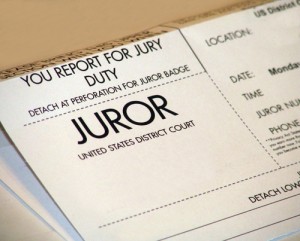 On the eve of a criminal trial, you decide to Google the names of a few prospective jurors. One appears to have been suspended from the practice of law due to a criminal conviction. The next day at voir dire, however, the potential juror states that her highest level of education is a B.A. in English literature, thereby quelling your concerns that she may be a suspended attorney. During trial, the juror submits a note to the judge, asking for an instruction on “respondeat superior” and raising questions about “vicarious liability.” None of these legal terms were ever mentioned by a lawyer or the presiding judge. What do you do now?
On the eve of a criminal trial, you decide to Google the names of a few prospective jurors. One appears to have been suspended from the practice of law due to a criminal conviction. The next day at voir dire, however, the potential juror states that her highest level of education is a B.A. in English literature, thereby quelling your concerns that she may be a suspended attorney. During trial, the juror submits a note to the judge, asking for an instruction on “respondeat superior” and raising questions about “vicarious liability.” None of these legal terms were ever mentioned by a lawyer or the presiding judge. What do you do now?  Companies in every industry—private and public—struggle with the difficult task of promptly identifying employee wrongdoing and responding appropriately. The National Football League continues to be embroiled in a controversy arising from its reaction to the off-the-field conduct of its players. Penn State University continues to make attempts to repair its reputation after the Jerry Sandusky scandal. Lloyds Banking Group recently dismissed eight employees and sought to recoup millions in bonuses after it was revealed that they, along with employees of at least two other British banks, had attempted to manipulate benchmark interest rates from 2006 to 2009. Even government organizations struggle with this issue: Last month, Philadelphia Municipal Court Judge Joseph C. Waters Jr. resigned amid an investigation by the FBI that has lasted more than a year.
Companies in every industry—private and public—struggle with the difficult task of promptly identifying employee wrongdoing and responding appropriately. The National Football League continues to be embroiled in a controversy arising from its reaction to the off-the-field conduct of its players. Penn State University continues to make attempts to repair its reputation after the Jerry Sandusky scandal. Lloyds Banking Group recently dismissed eight employees and sought to recoup millions in bonuses after it was revealed that they, along with employees of at least two other British banks, had attempted to manipulate benchmark interest rates from 2006 to 2009. Even government organizations struggle with this issue: Last month, Philadelphia Municipal Court Judge Joseph C. Waters Jr. resigned amid an investigation by the FBI that has lasted more than a year.

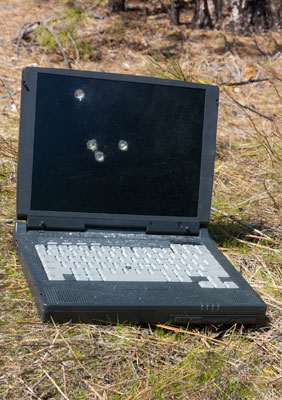 Lawyers must take “appropriate” steps to preserve their clients’ potentially relevant and discoverable social media evidence. That is the key take-away from an ethics opinion recently issued by the Philadelphia Bar Association. However, lawyers may advise a client to restrict access to the client’s social media so long as the attorney neither instructs nor permits the client to permanently destroy that information. An attorney may even instruct a client to delete information from the client’s page if the attorney preserves that information, including meta data.
Lawyers must take “appropriate” steps to preserve their clients’ potentially relevant and discoverable social media evidence. That is the key take-away from an ethics opinion recently issued by the Philadelphia Bar Association. However, lawyers may advise a client to restrict access to the client’s social media so long as the attorney neither instructs nor permits the client to permanently destroy that information. An attorney may even instruct a client to delete information from the client’s page if the attorney preserves that information, including meta data. 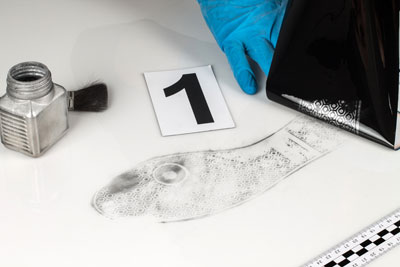 You “Must” Produce Complete Social Media Content
You “Must” Produce Complete Social Media Content With fewer trials and an increasing focus on using the discovery process to leverage a favorable settlement or resolution, it is common for litigation counsel to be obstructionist during discovery. For example, counsel may interpose depositions with unwarranted boilerplate objections or subtly (or not so subtly) coach the witness by clarifying or commenting on the pending question. While such conduct is often ignored, it has contributed to rising litigation costs throughout the last decade and, as a sanctions order issued at the end of July by a federal judge in the Northern District of Iowa demonstrates, it can severely diminish counsel’s credibility before the trial judge. In light of the impact that discovery tactics can have on the cost and success of litigation, it is increasingly important for general counsel to set clear expectations when retaining attorneys to represent the company in litigation.
With fewer trials and an increasing focus on using the discovery process to leverage a favorable settlement or resolution, it is common for litigation counsel to be obstructionist during discovery. For example, counsel may interpose depositions with unwarranted boilerplate objections or subtly (or not so subtly) coach the witness by clarifying or commenting on the pending question. While such conduct is often ignored, it has contributed to rising litigation costs throughout the last decade and, as a sanctions order issued at the end of July by a federal judge in the Northern District of Iowa demonstrates, it can severely diminish counsel’s credibility before the trial judge. In light of the impact that discovery tactics can have on the cost and success of litigation, it is increasingly important for general counsel to set clear expectations when retaining attorneys to represent the company in litigation.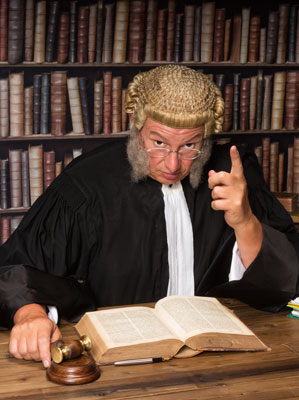 described by the court is not a rarity during depositions. Perhaps baseless objections and interruptions do not normally occur as excessively as they did in this instance. However, most litigators have encountered at least a few attorneys who make vague and excessive form objections and interpose unnecessary comments during the deposition, often in an effort to control the deposition and encourage the witness to provide more favorable, limited answers.
described by the court is not a rarity during depositions. Perhaps baseless objections and interruptions do not normally occur as excessively as they did in this instance. However, most litigators have encountered at least a few attorneys who make vague and excessive form objections and interpose unnecessary comments during the deposition, often in an effort to control the deposition and encourage the witness to provide more favorable, limited answers.  Many attorneys refuse to cooperate during discovery because they believe it will force their adversaries to settle or will be advantageous later in the litigation. However, Bennett identified another reason attorneys may object to legitimate discovery requests: They believe clients expect them to frustrate the adversary. Corporate counsel must consider whether it is in their interest for their attorneys to frustrate the adversary while increasing the cost and burden of discovery, and risk losing credibility with the trial judge in the event counsel’s conduct is brought to the attention of the court.
Many attorneys refuse to cooperate during discovery because they believe it will force their adversaries to settle or will be advantageous later in the litigation. However, Bennett identified another reason attorneys may object to legitimate discovery requests: They believe clients expect them to frustrate the adversary. Corporate counsel must consider whether it is in their interest for their attorneys to frustrate the adversary while increasing the cost and burden of discovery, and risk losing credibility with the trial judge in the event counsel’s conduct is brought to the attention of the court. transcripts may shape its view of the attorneys or the parties’ legal positions. Appearing to be unprofessional is poor advocacy.
transcripts may shape its view of the attorneys or the parties’ legal positions. Appearing to be unprofessional is poor advocacy.